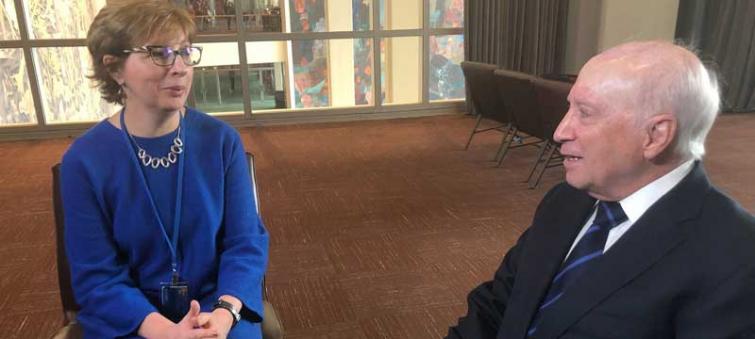
‘I don’t like to give up': veteran UN envoy reveals how two decades of quiet diplomacy gave birth to North Macedonia
New York, Feb 28 (IBNS): Last June, a historic agreement settled a 27-year-long name dispute between two countries, the former Yugoslav Republic of Macedonia and Greece. One man, Matthew Nimetz, patiently led the negotiations on behalf of the United Nations for over two decades and he told UN News, in an exclusive interview, that his faith in a positive outcome never faltered.
When the UN-brokered “Prespa Agreement” between Athens and Skopje was ratified by the two countries’ parliaments and formally entered into force on 12 February , recognizing the “Republic of North Macedonia,” his mission was finally accomplished.
In a delightful twist of fate, due to various circumstances, the agreement had been signed by the Prime Ministers of Greece and North Macedonia seven months earlier, on 17 June: Nimetz’s 79th birthday.
Wanting to know more about the kind of determination it took to keep going over the years , UN News invited him to talk about the highs and the lows of the marathon effort, as he prepares to walk away from his position as Personal Envoy of the Secretary-General, a role he has occupied since 1999, for the princely salary of US$ 1 per year.
Why did it take so long to negotiate a few words? What is really at stake behind the name of a country? What other names were thrown in the ring? Did he ever feel like giving up?
With UN News’s Elena Vapnitchnaia, Nimetz looked back on his extraordinary labour of peace, and shared some of his more personal recollections of an odyssey in the service of the UN, that ultimately, ended in success.
Image Credit: UN News / Alban Mendes De Leon
Support Our Journalism
We cannot do without you.. your contribution supports unbiased journalism
IBNS is not driven by any ism- not wokeism, not racism, not skewed secularism, not hyper right-wing or left liberal ideals, nor by any hardline religious beliefs or hyper nationalism. We want to serve you good old objective news, as they are. We do not judge or preach. We let people decide for themselves. We only try to present factual and well-sourced news.







